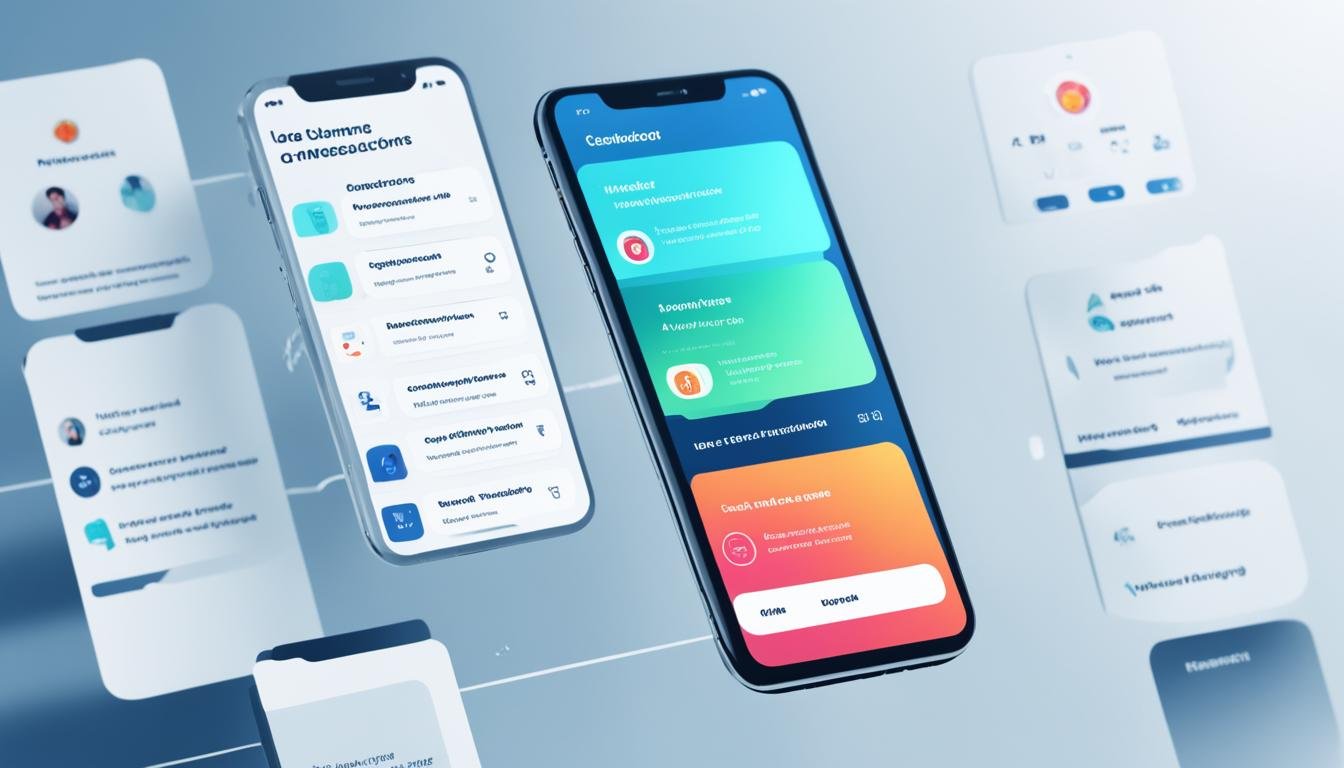Heads up – This post includes affiliate links. If you click and purchase, I may received a commission at no extra cost to you. I only recommend products which I have personally vetted.
Starting an affiliate marketing business is tough, especially building a website that attracts good traffic. That’s why you can sell an affiliate website for up to 40 times its monthly income. You don’t need a website to make money with affiliate marketing. The key things you need are an audience, an offer, and a way to get people to see your affiliate links.
Many affiliate marketers use their website as their main tool. But, there are many ways to promote affiliate links without a website.
Quick Recommendation: New to Affiliate Marketing? Check out John Thornhill’s Ambassador Program to learn more. Already Established? Partner with John to promote a funnel worth up to £3893 in commissions.
Key Takeaways
- You can earn passive income through affiliate marketing without a website.
- The three essential elements for affiliate marketing are an audience, an offer, and a traffic source.
- Platforms like Quora, Reddit, YouTube, and social media can be used for affiliate marketing without a website.
- Paid advertising and landing pages can also be effective in affiliate marketing without a website.
- Offline tactics, such as word-of-mouth and local community engagement, can help your website-less affiliate marketing efforts.
Why You Don’t Need a Website for Affiliate Marketing
Affiliate marketing lets you earn money without needing a website. You can use online platforms and social media to promote products and get traffic. You just need an audience, an offer, and a way to connect them.
The Three Essential Ingredients for Affiliate Marketing
To succeed in affiliate marketing without a website, focus on these three things:
- Building an Audience: Grow a group of people who like your content. This can be on social media, through emails, or on platforms like YouTube, Medium, or Substack.
- Finding Affiliate Offers: Look for products that your audience will find useful. Use networks like Impact, CJ Affiliate, ShareASale, and Rakuten Advertising for a variety of options.
- Generating Traffic: Share your content on TikTok, Instagram, Facebook, and LinkedIn. Paid ads on Google and social media can also help bring more people to your offers.
Having a website helps with affiliate marketing, but it’s not a must. By focusing on these three key points, you can make money with affiliate marketing without a website.
Successful affiliate marketing means giving value to your audience, building trust, and promoting products they’ll find useful. Use social media, email, and other online tools to succeed in affiliate marketing without a website.
The Importance of Landing Pages
Even if you can do affiliate marketing without a website, a custom landing page is key. A landing page is a simple website that helps you sell affiliate products well. It’s vital for increasing conversions by giving a focused place for traffic from social media, email, and online groups.
Landing pages help you get traffic from paid ads like Google Ads. Tools like ClickFunnels, Leadpages, MailerLite, and Woorise make it simple to build high-converting landing pages without coding. They offer many templates and ways to customize, helping you make affiliate marketing landing pages that look great and work well.
Landing Page Builders for Affiliate Marketers
Using a landing page builder is a smart choice for affiliate marketers who don’t need a full website. These tools have special features and templates for affiliate marketing, including:
- Lead capture forms to collect email addresses and other contact information
- Integrations with email marketing platforms for effective follow-up
- Split-testing capabilities to optimize conversion rates
- Analytics and tracking to measure the success of your landing pages
- Mobile-responsive designs to ensure a seamless user experience across devices
With a landing page builder, affiliate marketers can make professional-looking, custom landing pages that turn affiliate traffic into leads and sales. This is a big advantage for those wanting to generate leads and boost conversions without a full affiliate marketing landing pages.
Promoting Affiliate Links on Online Communities and Forums
Online communities and forums are key in affiliate marketing today. Sites like Quora and Reddit are full of users looking for info on specific topics. Many of these users might be ready to buy something related to what they’re learning. By answering questions well and sharing your knowledge, you can show you’re an expert and sometimes suggest affiliate products.
Success here means adding value, not just sharing links. Gain trust by being real, sharing what you know, and solving problems. This way, you connect with people and become a go-to source in your area.
When sharing affiliate links, follow the rules of each forum. Some don’t allow direct links, so you might need to get creative. You could mention the product in your answer or link to your blog with the offer.
Your goal is to be seen as a trusted expert, not just a salesperson. Focus on helping the community and letting your real advice speak for itself.
Promoting on Quora and Reddit
Quora and Reddit are great places for affiliate marketers. They let you connect with people and share what you know. Here’s how to promote affiliate links on these sites:
- Join in on discussions in your area, offering helpful answers.
- Share your own stories and insights to show you know your stuff.
- When it fits, suggest affiliate products that could help the community, but don’t overdo it.
- Work on building your reputation over time to make your advice more credible.
Building Authority in Niche Communities
Don’t forget about smaller, specialized communities in your niche. These can be great for affiliate marketing on online forums and becoming an expert. By being active, answering questions, and sharing useful stuff, you can become a go-to person in your field. This makes your affiliate advice more powerful.
| Platform | Potential for Affiliate Marketing | Key Considerations |
|---|---|---|
| Quora | High | Provide thoughtful, informative answers; avoid direct affiliate links |
| High | Participate in relevant subreddits; check community guidelines for affiliate links | |
| Niche-specific forums | Medium to High | Build authority and trust within the community; be mindful of promotional guidelines |
Using online communities and forums can help you promote on Quora and Reddit and build authority in niche communities without needing a website. Focus on adding value, being real, and gaining your audience’s trust to make your affiliate marketing work well.
Building a YouTube Channel for Affiliate Marketing
Looking to start affiliate marketing without a website? A YouTube channel could change the game. YouTube is huge, reaching more adults on mobile than any cable network. You can promote products and earn commissions with engaging videos.
YouTube lets you use many video types. You can do product reviews, comparisons, how-to guides, and unboxing videos. Channels like Canadian Prepper show how to build a following and earn by promoting products.
When making YouTube content, focus on giving value. Offer reviews, comparisons, and tutorials that solve problems for your viewers. This way, you become a trusted source, helping you earn commissions.
Consistency is key in affiliate marketing on YouTube. Upload quality videos often for your audience. Talk to your viewers, answer comments, and keep improving your content. This builds a loyal following that trusts your advice and clicks on your links.

Also, make your channel easy to find. Use the right keywords in titles, descriptions, and tags. Create playlists and promote your videos to get more views and traffic to your links.
Building a successful YouTube channel for affiliate marketing takes work. But, it can pay off big. Use YouTube’s audience and formats to grow your affiliate marketing business without a website.
Quick Recommendation: New to Affiliate Marketing? Check out John Thornhill’s Ambassador Program to learn more. Already Established? Partner with John to promote a funnel worth up to £3893 in commissions.
Running Paid Ad Campaigns for Affiliate Products
Many website-less affiliate marketers use affiliate marketing PPC ads to get paid traffic for affiliate offers. They bid on keywords and create ads that link to their landing pages. PPC ads let you target specific people, but you must watch your spending to make money.
For generating conversions from ad campaigns, knowing about ad formats and platforms is key. Different ad networks offer various ad types. It’s important to try different ads to see what works best. Retargeting ads can also help bring back users who are already interested in your products.
To do well with affiliate marketing PPC ads, improve your skills in keyword research, ad writing, landing page design, and campaign management. Testing and tweaking your ads can help you find the best strategies and grow your affiliate marketing.
Paid Traffic Strategies for Affiliate Marketers
- Use search engine PPC ads to target keywords related to your products.
- Try different ad formats like display, video, and social media to see what works best.
- Use retargeting ads to reach users who have shown interest in your offers.
- Keep improving your ad campaigns by testing new ad creatives, targets, and landing pages.
- Watch your ad spending and profits to make sure you’re making money.
| Ad Network | Specialty | Recommended Use Case |
|---|---|---|
| Google Ads | Search engine PPC | Target high-intent keywords for immediate traffic and conversions |
| Facebook Ads | Social media advertising | Reach a highly targeted audience and leverage retargeting capabilities |
| YouTube Ads | Video advertising | Leverage the power of video to build trust and drive affiliate sales |
| Display Network | Banner and display ads | Increase brand awareness and reach a broader audience |
Paid traffic can give quick results, but managing your ad spending is key. Make sure to keep improving your campaigns. Using both paid and organic methods can help you build a lasting affiliate marketing business without a website.
Utilizing Social Media for Affiliate Marketing
Social media is a powerful tool for affiliate marketers without a website. Platforms like Facebook, LinkedIn, Twitter, and Instagram help you connect with people and promote your affiliate offers. Each platform has its own strengths that can help your affiliate marketing.
Best Social Media Platforms for Affiliate Promotion
Facebook is great for networking and promoting brands. LinkedIn is perfect for reaching professionals in your field. Twitter is all about sharing news and opinions. Instagram is perfect for showing off products with great visuals.
It’s important to pick the right social media platforms that fit your affiliate niche and goals. By building a strong following and using targeted ads, you can promote your affiliate offers well without a website.
But remember, social media is just one way to succeed in affiliate marketing without a website. Other strategies like email marketing, influencer partnerships, and paid advertising can also work well to increase your affiliate sales and commissions.
Affiliate Marketing Without A Website
Having a website can help you look more credible and give you a place to share your affiliate marketing efforts. But, you don’t need a website to start a successful affiliate marketing business. There are many other ways to do it without one.
To succeed, focus on building trust with your audience. Offer real value and share affiliate products that truly help your followers. Here are some great ways to do affiliate marketing without a website:
- Social Media: Use Facebook, Instagram, and TikTok to promote products and connect with people. Pictures, stories, and working with influencers can help you make sales.
- Email Marketing: Build an email list and send regular updates to your subscribers. Make sure your emails work well on phones and include useful content and affiliate links.
- Guest Blogging: Write guest posts for blogs in your field and add your affiliate links. This helps you reach more people and show off your knowledge.
- Online Forums and Communities: Join forums and Reddit groups related to your niche. Share helpful advice and mention affiliate products in a way that builds trust.
- Podcasting: Start a podcast and talk about affiliate products during episodes. Audio content is a powerful way to share your recommendations.
- Paid Advertising: Use Google Ads, Facebook Ads, and TikTok Ads to send targeted traffic to your affiliate links. Make sure your ads are set up to get the best return on investment.
- Offline Tactics: Try old-school marketing like print ads, radio spots, or local events. These methods might not reach as many people, but they can work well in specific areas.
By trying out these different ways, you can do affiliate marketing without a website. You can build authority and trust with your audience and share a variety of affiliate products and services. The main thing is to make content and experiences that your followers will really like.
Offline Tactics for Affiliate Marketing Sans Website
While the digital world offers many chances for affiliate marketing without a website, don’t forget about offline methods. Word-of-mouth referrals are a simple yet powerful way to start. Just share your top affiliate products with friends and family. Then, grow your network by going to local events and joining groups that match your niche.
By networking and making personal connections, you can use word-of-mouth referrals to boost sales and earn commissions. This is all possible without being online.
Another great way is networking and engaging with your local. Go to events, meetups, and conferences to meet people who might be interested in your products and other marketers. Also, connect with local businesses and groups that fit your products. These offline affiliate marketing strategies can help build a strong base for your efforts.
Don’t overlook the impact of physical marketing materials, like business cards, flyers, or brochures. These can highlight your affiliate products and how to get in touch with you. Put these out in places like shops, libraries, or community centers. This offline affiliate marketing approach can reach people who don’t spend much time online.
The secret to doing well in affiliate marketing without a website is to use a mix of online and offline strategies. Combine digital methods with word-of-mouth referrals, networking and local community involvement, and physical marketing. This way, you can spread your message wider and increase your chances of making money, even without a website.

Quick Recommendation: New to Affiliate Marketing? Check out John Thornhill’s Ambassador Program to learn more. Already Established? Partner with John to promote a funnel worth up to £3893 in commissions.
Conclusion
Building a website isn’t a must for affiliate marketing success. While a website can boost your credibility and let you control your content, there are other ways to promote products and earn online without one.
Use social media, email, online communities, YouTube, paid ads, and offline networking to gain authority in your niche. This helps build trust with your audience and earn commissions through affiliate marketing. ClickBank, Amazon Associates, and CJ Affiliate are great programs to start with.
Optimizing your email campaigns, making engaging YouTube videos, or connecting in online forums can help you in affiliate marketing without a website. With creativity and the right strategies, you can earn passive income and grow your affiliate business today, all without needing a website.

FAQ
What are the three essential “ingredients” for affiliate marketing?
Do I need a website to start earning money through affiliate marketing?
Why are landing pages important for affiliate marketing without a website?
How can I use online communities and forums for affiliate marketing?
How can I use YouTube for affiliate marketing without a website?
What are the advantages and disadvantages of using paid ads for affiliate marketing without a website?
Which social media platforms are best for affiliate marketing without a website?
What are some offline tactics I can use for affiliate marketing without a website?
Heads up – This post includes affiliate links. If you click and purchase, I may received a commission at no extra cost to you. I only recommend products which I have personally vetted.






Leave a Reply